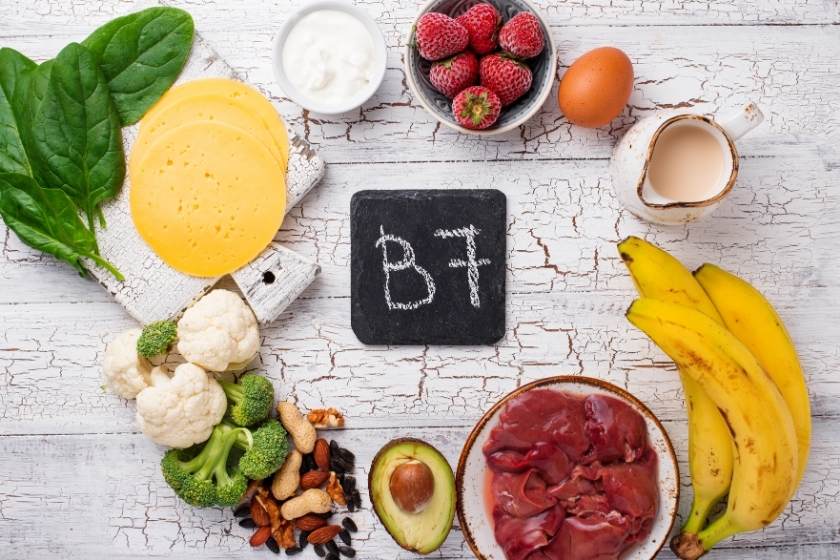Vitamin B7, popularly known as biotin, is a water-soluble vitamin. It plays an important role in our body’s energy production process. It is essential for healthy hair, skin and nails, as well as for nervous system functions and regulation of metabolism. Now, let’s discover this valuable vitamin in every aspect, from the benefits of vitamin B7 to its deficiency, from intake sources to daily needs.
What Does Vitamin B7 Do, What are the Benefits?
Vitamin B7 provides many benefits for our body. It contributes to energy production by playing a key role in the metabolism of carbohydrates, fats and proteins. It also supports the health of the nervous system and helps maintain psychological functions. It is also important for improving the health of hair, skin and nails, which is why it is often referred to as the beauty vitamin.
What are the Harms of Excess Vitamin B7?
Since vitamin B7 is water soluble, excess is easily excreted in the urine and therefore it is rare to cause toxicity. However, when taken in excessive amounts, side effects such as skin rashes, digestive problems and increased insulin secretion may occur. A health professional should always be consulted before using any supplement.
Vitamin B7 Deficiency Symptoms and Diseases Caused by
Although vitamin B7 deficiency is rare, it manifests itself with some symptoms:
- Hair Loss: Thinning and loss of hair is one of the most common symptoms of deficiency.
- Skin Problems: Dry skin, rashes and acne can be among the signs of deficiency.
- Nervous System Problems: Neurological effects such as depression, lethargy and even hallucinations may occur.
- Nail Fragility: Easy breakage and slow growth of nails are symptoms of deficiency.
What is Vitamin B7 and How to Take It?
Vitamin B7 can usually be easily obtained from a variety of foods. Egg yolks, nuts such as hazelnuts and peanuts, whole grains, dairy products, fish and liver are the richest sources of B7. A balanced and varied diet usually provides adequate B7 intake.
Which Foods Contain Vitamin B7
Vitamin B7 is found in a wide range of foods and can be easily obtained through a healthy diet. This vitamin is important for various functions of the body, such as energy production and the health of hair, skin and nails. Below are some suggestions on foods rich in vitamin B7 and how you can include this vitamin in your diet:
- Egg Yolk: Eggs, especially the yolk, are an excellent source of vitamin B7. You can increase your daily B7 intake by adding omelettes or boiled eggs to your morning breakfasts.
- Nuts and Seeds: Nuts and seeds such as almonds, walnuts, hazelnuts and sunflower seeds are rich in vitamin B7 and other important minerals. You can consume them as snacks or add them to your salads.
- Whole Grains: Whole grains such as whole grain bread, brown rice and oats are good sources of vitamin B7. By including these foods in your daily diet, you can naturally increase your vitamin B7 intake.
- Dairy Products: Dairy products such as cheese, milk and yoghurt are good sources of vitamin B7. You can get both calcium and vitamin B7 by consuming these products in your daily diet.
- Fish: Fatty fish such as salmon, sardines and tuna are rich in vitamin B7. Consuming fish several times a week provides a good intake of B7 along with omega-3 fatty acids.
- Liver and other organ meats: Liver, especially beef and chicken liver, is very rich in vitamin B7. Organ meats are also high in other important nutrients such as iron, vitamin B12 and folate.
- Vegetables: Vegetables such as avocado, broccoli and spinach are good sources of vitamin B7. By adding these vegetables to your diet, you can provide a balanced diet rich in fibre, vitamins and minerals.
- Berries: Berries such as strawberries and raspberries contain small amounts of vitamin B7 and can make a sweet addition to your diet.
What is the Daily Vitamin B7 Requirement?
The daily requirement of vitamin B7 for an adult individual is approximately 30-100 micrograms. Pregnant or breastfeeding women may need slightly higher amounts. This amount may vary according to factors such as age, gender and health status.
Top 7 Most Asked Questions and Answers
- Which Foods Contain Vitamin B7?
- Egg yolk, nuts, whole grains, dairy products, fish and liver.
- What is Vitamin B7 Deficiency?
- Lack of sufficient vitamin B7 in the body can lead to various health problems.
- How Much Vitamin B7 Should I Take Daily?
- 30-100 microgrammes for adults.
- Is Vitamin B7 Useful for Hair?
- Yes, it supports hair health and can prevent hair loss.
- Does Vitamin B7 Make Weight Gain?
- It does not directly cause weight gain, but it can help healthy weight management by regulating metabolism.
- Is It Safe to Take Vitamin B7 Supplements?
- Yes, but it should not be overdosed and a health professional should be consulted before use.
- Why is Vitamin B7 Important?
- It is essential for energy production, nervous system health, hair, skin and nail health.
Vitamin B7 is vital for the proper functioning of our body. When taken in adequate amounts through a balanced diet, it provides positive effects on health and well-being. Before using any supplement, it is important to consult a health professional to assess the potential benefits and risks.

